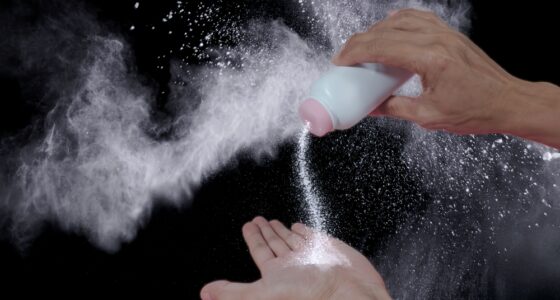The judge who’d overseen the case of mesothelioma victim Evan Plotkin denied Johnson & Johnson’s petition for a new trial despite the company’s arguments that the court should have precluded, in whole or part, the opinions of the plaintiff’s expert witnesses. The judge’s decision came the same week that he awarded the victim $10 million in punitive damages, bringing the total award to $25 million.

Judge Weighed Jury’s Decision in Mesothelioma Case
The mesothelioma case was heard in October 2024, when a jury overseen by Connecticut Superior Court Judge Charles P. Reed heard expert testimony from pathologist Arnold Brody, pulmonologist Steven Haber, electron microscopist William Longo, geologist Mark Bailey, and statistician David Madigan. All three collectively concluded and established that asbestos-containing talc in the baby powder that Mr. Plotkin had used from the 1950s through the 2000s had caused his peritoneal mesothelioma. The jury found that Johnson & Johnson had failed to warn about asbestos contamination and that their conduct directly caused his injury. They awarded him $15 million in compensatory damages and punitive damages to be determined by the judge.
In response to the decision, Johnson & Johnson filed multiple motions asking the judge to overturn the verdict, reduce the damages, or order a new mesothelioma trial. The company argued that the victim’s medical causation expert, Dr. Haber, should not have been permitted to testify because his opinions relied on other experts’ reports. They separately argued against the $30 million in punitive damages that Mr. Plotkin’s attorneys requested, asserting that punitive damages were not appropriate in the case despite evidence of Johnson & Johnson’s wrongdoing despite the jury having been presented with evidence that the company chose to use testing methods that were less sensitive to detecting asbestos presence and had examined its results in the light most favorable to its position.
Mesothelioma Verdict Survives Company’s Appeal Attempts
Judge Reed denied all three of the company’s motions regarding the trial, noting that the witnesses had unquestionably been qualified to evaluate and use data from other experts based on their professional training, knowledge, and experience. He said that the expert testimony had been properly admitted and that the jury’s verdict was not manifestly unjust, emphasizing that the right to trial by jury carries the right to have findings remain undisturbed except in extreme circumstances, and that unrefuted evidence supported Plotkin’s claims of serious injuries requiring substantial treatment, recovery time, and lasting symptoms.
In keeping with the jury’s decision, the judge also awarded the mesothelioma victim an additional $10 million in punitive damages, writing that the award “is appropriate and comports with due process” because Johnson & Johnson was at least willfully ignorant of or indifferent to the dangers of its asbestos-containing products. “Instead of erring on the side of caution — by giving a simple warning about a health risk at least potentially associated with its product — J&J sought to promote the perception of [Johnson’s baby powder’s] purity and capitalize on the mother-child bond using arguably deceptive marketing and advertising. This was so because from the 1960s to the 2000s, J&J recognized JBP as a crucial product in its portfolio, often describing it as its ‘cornerstone’ and ‘flagship product.'”
IF you or someone you love has been diagnosed with mesothelioma, the Patient Advocates at Mesothelioma.net are here to help. Contact us today at 1-800-692-8608 to learn more.
